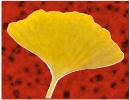
Missive the Forty-Eighth
Don't Put Me
In No Mercy Seat.
DATELINE: Wednesday, January 10, 2001, at 0830 hours CDT.
Conway, Arkansas, USA
By D. Ebenezer Baldwin Bowles
CornDancer & Company
Bottomland in winter. Thin trees like living sticks, rooted in the gumbo. Shadow black, raw umber, mottled grey, and the white of ice in the fore of a flat horizon.
Once ago the neighborhood, the lie claims, was all "white." That's the word he used. Then a "black" family of merchant class purchased the deed to a house on a prominent corner lot. Now the neighborhood, the lie claims, is all "black."
A thin river like a lean cottonmouth moccasin twists through the trees and gumbo. Highway Seventy-Five is laid-out on the earth to follow the course of the river, but the asphalt path can't meander like the stream. It is restricted to the measure of man.
The Nostalgia Is Chiseled on Fields of Wheat.
To navigate the highway in a motor machine means to draw near to the banks and then speed away from the banks, like a strand of agitated air caught in the accordion. It was something like that; strange music, our twisting passage through the backcountry in the brilliant winter — the chiseled nostalgia, the familiar thrill of lonely speed, a chosen isolation from traffic and the glare of men. Our truck, racing the sunset at seventy per, maybe eighty, hugs the tree-lined northwest bank for a fast mile, then follows a curve, slows to fifty, pulls away from the water line to speed again through the empty rice fields, past the thousand rows of winter wheat not yet emerged, until the highway returns again to the river bank.
Don't put me in no mercy seat, no. Don't strap no leather hat to my head.
Whence do the Africans come? Why do the Ashanti and the Fang, the Baganda and the Kamba stake claim to the neighborhood of the Pole and the Swede, the Saxon and the Goth? To hence do the Europeans flee?
"I'll be doin' all right for country trash," John Cash sings.
Limbs of the river birch and water cypress, the willow and the elm lie broken and twisted at the edge of the highway. Snow clings to the muddy bank on the wrong side of the sun. Abandoned shanties, stripped of shingles and glass, stand askew or stagger on the abandoned clearing of the homestead. It is lost to man. It is a scene to pass.
They Are the Experiment in Hope, the Justification.
Children in white shirts and blouses, navy blue trousers and dresses, stand tall and eager in another kind of classroom. They are the experiment in hope, the justification. Educate them in the urban nucleus for the grit and clamour they shall surely face, not in the ashram for your penance and their servility. Prepare a way for the engaged mind and harmonious spirit to claim the birthright of a citizen, or the righteousness of the rebel.
"Have you come here for forgiveness? Have you come here to raise the dead?" John Cash sings.
No clouds, a lone contrail, alert hawks on the wires 'neath the infinite dome of delta sky. A pair of pickup trucks parked on the high levee, their painted sides gleaming in the hot yellow of the setting sun. I thought they were strange lights in the twilight, but then I have lost too many verbs. They have fallen through the ice into the thin old river. They are washing away in the muddy water. They may flow all the way to the Mississippi. Who knows where on the edge of a cloudless sunset, the leading edge of the night of the Wolf Moon?
Am I upstream of your gilded pyramid?
Skeptical Aspirants with Their Crosses to Bear.
Give us hoops, I demand of the arbiter. I want painted hoops to jump through. I'll jump through any hoops you bring me now, but for a price, only if you agree in writing to put my face on a poster, pay me a grant, make me an official famous writer with an adoring audience and skeptical young aspirants, who will sit at my feet with their crosses to bear.
"Would you still love me when I'm down and out?" John Cash sings. I've heard that one before, but not the next: "I don't intend to do nothing for nobody no time." His is the presage, the echo from the morrow.
A piece of paper is taped to a closet door. It is a hand-written list with five names: apostle, prophet, evangelist, shepherd, teacher. When we spied it there, we suspected it was some kind of key to a subversive formula for government. The old seer who scribbled it claimed he first saw it rollin' 'round heaven, said it streaked to earth in a fiery ball. He had to hire a prospector and two miners to help him find it, a team of mules and a 'skinner to carry it home.
I take it back, Mister Arbiter, Sir. I won't jump through no hoops for you or no one else. I recant, O Big Man, Mister Boss Crump. Be the judge and jury of someone else. Throw your hoops in the river with my lost verbs. We can swim for 'em, see who gets there first. "But we'll all be equal under the grass. And God's got a heaven for country trash," the old troubadour sings.
WATCH FOR MISSIVE THE FORTY-NINTH
on Friday, January 12, 2000.
The twice-weekly Letters from Cricket Song
is available by E-mail.
Let us know if you want to receive it.
Please forward your name and email address to
ebenezer@corndancer.com
You're also welcome to add a friend or associate to the list.
Visit the web site at corndancer.com
| ©2000 by David Ebenezer Baldwin Bowles |
| Send
e-mail | 501.450.7989 |








